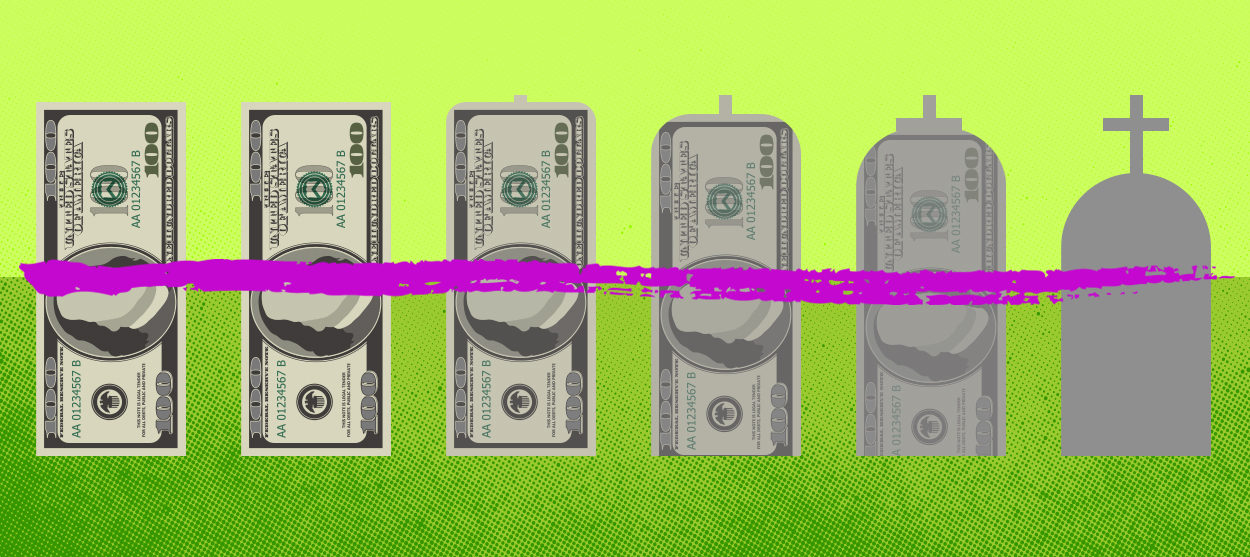Late capitalism isn't killing us
Drugs were behind the opioid crisis, not globalization


A free daily email with the biggest news stories of the day – and the best features from TheWeek.com
You are now subscribed
Your newsletter sign-up was successful
The plague of "deaths of despair" may be finally abating. American life expectancy was up in 2018 for the first time since 2014, according to a new Centers for Disease Control and Prevention report. That gain was in part due to the first drop in drug overdoses in almost three decades. We should all hope and pray these aren't statistical blips and that progress continues.
But if you think the root cause of deaths of despair in the 2000s — defined as suicide, as well as fatalities from drug and alcohol poisoning — is fundamentally one of "late capitalism" economics, why would one expect these reversals to stick? Has modern America somehow suddenly become less unequal, with workers less vulnerable to disruption from technology and globalization?
Hardly, say those making this argument on the left and right. "We must put an end to the obscene income and wealth inequality in our country … or, a whole generation will be condemned to early death," says Sen. Bernie Sanders (I-Vt.). "Despite three years of robust economic growth, millions are unable to find dignified work; they feel forgotten and left behind," says Sen. Marco Rubio (R-Fla.). "The repercussions have extended far beyond the economy [and include] an increase in drug dependency, suicides, and other deaths of despair."
The Week
Escape your echo chamber. Get the facts behind the news, plus analysis from multiple perspectives.

Sign up for The Week's Free Newsletters
From our morning news briefing to a weekly Good News Newsletter, get the best of The Week delivered directly to your inbox.
From our morning news briefing to a weekly Good News Newsletter, get the best of The Week delivered directly to your inbox.
But the economic explanation for the rise in deaths of despair isn't so obvious to many economists. This is particularly true when it comes to the fatal drug epidemic afflicting America. In the 2018 study "Deaths of despair or drug problems?," University of Virginia economist Christopher Ruhm concedes the superficial plausibility of the economic explanation. Since 1999, U.S. counties experiencing economic decline have shown larger increases in drug, suicide, or alcohol mortality than those with more robust growth. As such, Ruhm notes, "the particularly large rise in drug mortality in Appalachia and the Rust Belt seems consistent with the deaths of despair hypothesis."
But other things seem curiously inconsistent with that economic explanation. Non-whites, for instance, have faced far tougher economic times and greater insecurity than whites, but the increase in drug mortality has been far greater for the latter. Moreover, plenty of other rich economies have seen a decline in their manufacturing bases and the emergence of their own rust belts. What they all haven't seen is a wild surge in drug deaths. Ruhm's best estimate is that "changes in economic conditions account for less than one-tenth of the rise in drug and opioid-involved mortality rates." The problem, he concludes, isn't the economic environment but rather the drug environment due to overprescription of opioids and the availability of cheap synthetic drugs.
Ruhm's work has been backed up by more recent research, including the November 2019 working paper, "Origins of the opioid crisis and its enduring impacts." Researchers focused on the 1996 introduction and marketing of OxyContin as the possible leading cause of the opioid overdose crisis. Key to their work were recently-unsealed court documents involving Purdue Pharma, which showed the company avoided marketing Oxycontin to states with especially stringent drug monitoring programs that used special state-issued prescription forms. And while those states had higher overdose rates before 1996, they saw "substantially slower" growth on overdose rates afterward, even extending out 20 years. "Our results show that the introduction and marketing of OxyContin explain a substantial share of overdose deaths over the last two decades," the researchers conclude.
Self-reported despair and unhappiness has been rising for maybe 30 years in America, predating the explosion in deaths from despair by at least a decade. That may well have increased the demand for drugs and alcohol as emotional numbing agents. But as a recent report from the Senate Joint Economic Committee's Social Capital Project argues, it was "the proliferation of a uniquely addictive and deadly class of drugs" that made despair relief so deadly and "would have increased mortality even absent an increase in despair."
A free daily email with the biggest news stories of the day – and the best features from TheWeek.com
If so, the focus for policymakers should most immediately be on treating deaths of despair as a continuing public health problem with an emphasis on treatment and prevention. It's a mistake to instead try fighting the epidemic by fashioning a sort of cozier capitalism of less change and disruption — and almost certainly less economic growth and opportunity.
Want more essential commentary and analysis like this delivered straight to your inbox? Sign up for The Week's "Today's best articles" newsletter here.
James Pethokoukis is the DeWitt Wallace Fellow at the American Enterprise Institute where he runs the AEIdeas blog. He has also written for The New York Times, National Review, Commentary, The Weekly Standard, and other places.
-
 The ‘ravenous’ demand for Cornish minerals
The ‘ravenous’ demand for Cornish mineralsUnder the Radar Growing need for critical minerals to power tech has intensified ‘appetite’ for lithium, which could be a ‘huge boon’ for local economy
-
 Why are election experts taking Trump’s midterm threats seriously?
Why are election experts taking Trump’s midterm threats seriously?IN THE SPOTLIGHT As the president muses about polling place deployments and a centralized electoral system aimed at one-party control, lawmakers are taking this administration at its word
-
 ‘Restaurateurs have become millionaires’
‘Restaurateurs have become millionaires’Instant Opinion Opinion, comment and editorials of the day
